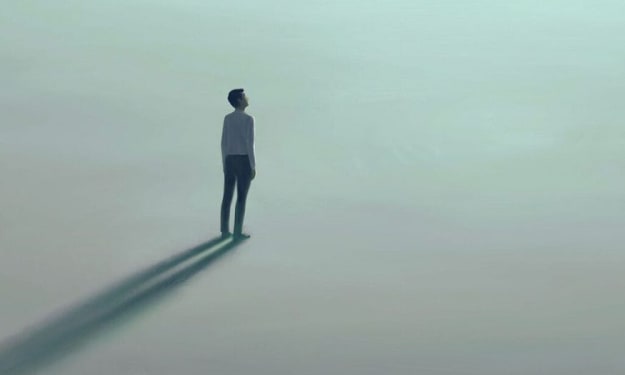Giuseppe Benassi, "Spiriti animali"
Aboout debauchery

“Lord Byron was right, we are possessed by animal spirits, invisible beasts take power in us, settle into our spirits, and are benevolent or malevolent as the case may be.”
By now Giuseppe Benassi has accustomed us to the cases of the lawyer Borrani and the detective stories that are pretexts for discussing something else. This “Animal spirits”, however, goes further, almost becoming a “conversation novel”.
Animal spirits are those evoked by the satanic and rebellious Lord Byron, a symbol of transgression. In each person, Borrani, inspired by Byron, sees a representative of the animal kingdom, with vices and low instincts but also with a lot of energy ready to explode.
“It was always the same story: we believe we know who we have an eye on every day, and then we reveal buried, unknown traits, of which we were completely unaware. The animal brain that takes over the human one. Every man is a forest where crowds of beasts hide.“
It is what Goleman calls neural sequestration, often triggered by the pituitary gland, the seat of instinct, in contrast with the frontal cortex, home of civilization and inhibition. Of all Benassi’s novels, this is the least intellectual, the least alchemical and esoteric, but the one in which perhaps the author most lays himself bare. Those same impulses harbingers of lust and violence are, he makes us understand, also bearers of their opposite.
Animal spirits break into a life that is “on the verge of a nervous breakdown”. Leopoldo Borrani, the lawyer from Livorno, intellectual, obnoxious and sex addict, feels the symptoms of depression arrive, what was once called a nervous breakdown. He is of an age and begins to concretely consider the hypothesis of not being alone anymore, of marrying Marianna Messori, the lover he now calls “girlfriend”, like Montalbano’s Livia, amidst quarrels and reconciliation. He does not want to surrender to drugs but not even to the emptiness, to the aridity of a condition that is desert and rubble, where it is not possible to establish true and deep relationships, where our fellow human beings bore us, because they are deformed, greedy and vulgar beasts, they are, as Borrani defines them, “unbearable humanity”, where narcissism makes us mirror in a pool that reflects only our image, which is also distorted and tedious.
“Make an effort, Borrani, you are becoming unbearable, wild, a little longer and you will be completely a sour spinster; try at least a little to be sociable, they are not all assholes and bitches, there is also some good in your neighbor; if you help someone, the good you do comes back to you, at least try it, realize that others also exist, that others make an effort to put up with you, that you are not the center of the world, that you have character defects, and if you are as intelligent as you think you have to understand … “
Animal spirits take the form of a dog, Cioppi, left in the custody of the surly lawyer by a South American client at war with her husband. Cioppi unleashes an unexpected sympathy in Borrani’s withered soul, he brings out, by contrast, the humanity that lingers in him, pushing him to gestures of kindness, in search of the Good for his neighbor. He will therefore feel — really or only as an attitude of manner, as a “lacrimetta in fin di vita” — the need to be kinder to his employees, more affectionate with his girlfriend, to remedy all the anaffection he felt up to now.
At the same time, however, contact with the animal leads him along a dangerous path which, if continued, could even lead to sodomy, making him take the leap hitherto only imagined as sinful, precisely byronic possibility. Everything mixes in Borrani’s perverse imagery: the dog’s loving and warm tongue, the bathrobe steeped in the smell of the young practitioner Pippi, the longed-for third tit of the exotic client. They are morbid details, the result of an excited and sick mind that always needs constant stimuli, disgusted by everyday life, by the days spent on the Pancaldi beach resorts listening to women who are fake intellectual astrophiles.
Once again, the best and most authentic part of the book is the description of Livorno, at times lyrical
“The smell of salt mixed with that of the flowers that had just blossomed. The scent of the freshly rotted algae that the waves had pushed onto the pebble beach made me want to go to the sea. The windows of the casine dell’Ardenza were all wide open, mouths breathing like living beings. “
sometimes plebeian
“A ferry came out of the port just at that moment, farting a sonorous black smoke”
with representations of crowded beach resorts, of the market, of the women of the people with sweaty feet, swollen ankles and a shopping bag.
Human matter is always repugnant in Benassi, only nature has an uncontaminated inspiration, it is clear like art, like pure reason. Just like that, just blending high and low by integrating soul and nature, intellect and instinct, the alienated, bewildered, debauched, maladjusted human being can hope, not so much to overcome his depressed condition, but at least to get by, bringing together the double, the two-faced Janus, the spirit and the animal.
About the Creator
Patrizia Poli
Patrizia Poli was born in Livorno in 1961. Writer of fiction and blogger, she published seven novels.






Comments
There are no comments for this story
Be the first to respond and start the conversation.